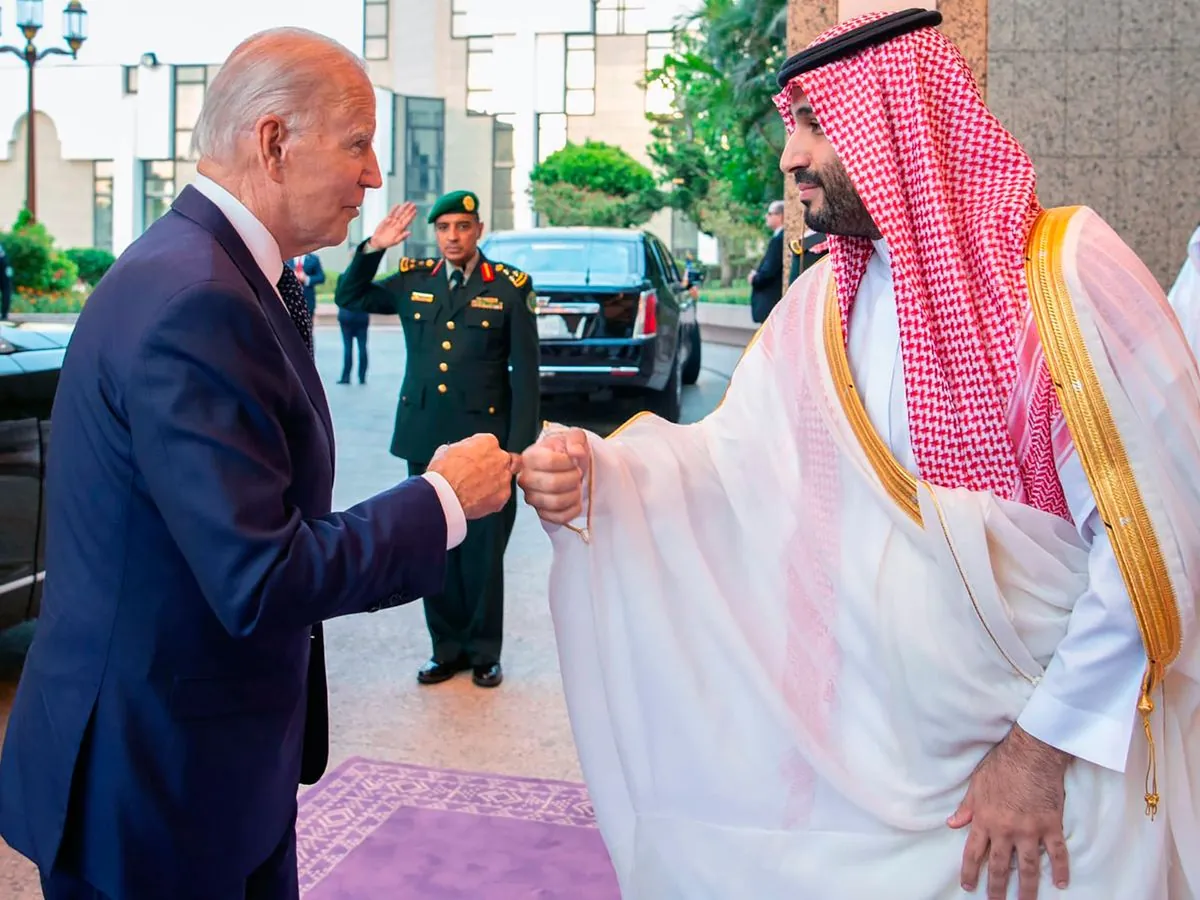The Biden administration has announced the lifting of a ban on selling offensive weapons to Saudi Arabia, marking a significant shift in U.S. policy towards the Kingdom. This decision, revealed on August 9, 2024, reverses a three-year-old stance aimed at pressuring Saudi Arabia to reduce its involvement in the Yemen conflict.
According to sources familiar with the matter, the U.S. government has briefed Congress on this policy change, with arms sales potentially resuming as early as next week. The move comes after the administration determined that Saudi Arabia had met certain conditions, including refraining from airstrikes in Yemen since March 2022 and a significant reduction in cross-border fire from Yemen into the Kingdom.
A senior Biden administration official stated, "The Saudis have met their end of the deal, and we are prepared to meet ours, returning these cases to regular order through appropriate congressional notification and consultation."
The Yemen conflict, ongoing since 2014, has been one of the most devastating humanitarian crises in recent history. It began when the Houthis, an Iran-aligned rebel group, ousted the Saudi-backed government from Sanaa, Yemen's capital. In 2015, Saudi Arabia intervened, leading a military alliance against the Houthis.
This war has had catastrophic consequences for Yemen, the poorest country in the Middle East. It has resulted in hundreds of thousands of deaths and left approximately 80% of Yemen's population dependent on humanitarian aid. The conflict has also severely impacted Yemen's infrastructure and economy, displacing millions of people.
The Yemen situation is often viewed as a proxy battle between regional rivals Iran and Saudi Arabia. The U.S. has historically been a major arms supplier to Saudi Arabia and has provided logistical support to the Saudi-led coalition in Yemen. However, the Biden administration initially paused some arms sales to Saudi Arabia in 2021, citing concerns over civilian casualties in the Yemen conflict.
The United Nations has been attempting to broker peace in Yemen since the conflict began, with the Houthis now controlling much of northern Yemen, including Sanaa. The U.S. Congress has previously made efforts to block arms sales to Saudi Arabia due to concerns over the Kingdom's human rights record and its role in the Yemen war.
This latest decision by the Biden administration signals a potential shift in the dynamics of the Yemen conflict and U.S.-Saudi relations. However, it remains to be seen how this policy change will impact the ongoing humanitarian crisis in Yemen and the broader geopolitical landscape of the Middle East.
"The Saudis have met their end of the deal, and we are prepared to meet ours, returning these cases regular order through appropriate congressional notification and consultation."
As the situation continues to evolve, the international community will be closely watching the implications of this decision on regional stability and the prospects for peace in Yemen.
